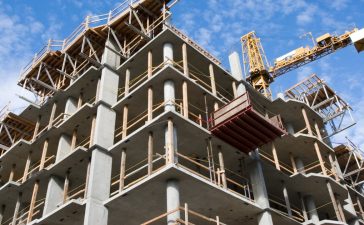
Former Vice President Mike Pence
Photo:
Anna Moneymaker/Getty Images
On Jan. 6, 2021,
stood up for the Constitution against
and he has paid for it politically with MAGA Republicans. Now the former Vice President is defending the Constitution again in resisting special counsel
Jack Smith’s
subpoena, and this time the left is attacking him. His stand on principle is right again and deserves support.
Mr. Smith’s grand jury recently demanded that Mr. Pence appear to testify as a witness to the events surrounding Jan. 6. The subpoena looks like overkill, since it comes more than two years after the Capitol riot and related events that by now are well known.
Mr. Pence’s aides have testified before the House Jan. 6 select committee, and Mr. Pence has written a memoir recounting his conversations with Mr. Trump and the pressure he was under to stop counting Electoral College votes. The Justice Department was investigating all of this long before Attorney General
Merrick Garland
appointed Mr. Smith in November.
***
Mr. Pence’s resistance to the subpoena, which we’re told has no defined scope, is rooted in his role as President of the Senate. That was his constitutional position on Jan. 6 as he presided over the counting of the electoral votes. As such he has a strong case that he’s covered by Article 1, Section 6, which says that “for any Speech or Debate in either House,” Members of the House or Senate “shall not be questioned in any other Place.”
Some analysts says Mr. Pence can be compelled to testify because he wasn’t a Member of Congress. But that ignores that in presiding over the Senate he in effect was a Member. Legal precedents support this argument about the Vice President’s role in the structure of the separation of powers.
In Bogan v. Scott-Harris (1998), Justice
Clarence Thomas
wrote for a unanimous Supreme Court that “We have recognized that officials outside the legislative branch are entitled to legislative immunity when they perform legislative functions.”
In a 1972 case regarding publication of the Pentagon Papers (Gravel v. U.S.), Justice
Byron White
wrote that “It is true that the [Speech or Debate] Clause itself mentions only ‘Senators and Representatives,’ but prior cases have plainly not taken a literalistic approach in applying the privilege.”
The Court ruled that an aide to Sen.
Mike Gravel
was protected from testifying on legislative deliberations, though not from answering other questions. If a Senator’s aide is covered by the Speech or Debate Clause, surely a VP presiding over the Senate would be.
The Biden Justice Department has said as much in legal filings defending Mr. Pence himself from lawsuits related to Jan. 6. In December 2020, Justice defended Mr. Pence against a suit by then GOP Rep.
Louis Gohmert,
citing the Speech or Debate Clause, which it said protects other branches of government from questioning Congress for “legislative acts” that it defined as “‘an act generally done in Congress in relation to the business before it.’” Counting electoral votes counts as Congressional business.
Justice did it again in August 2021 when it told a federal district court that tort claims against Mr. Pence regarding the counting of electoral votes are “barred by the doctrine of absolute legislative immunity under the Speech or Debate clause” (Brunson v. Adams). Mr. Smith will have to explain in court why Justice has done a 180-degree turn in less than three years.
Amusingly, Mr. Pence can also produce pay stubs from the “United States Senate Disbursing Office” as a record of his salary. If he was paid for his work for the Senate, why isn’t he covered by Senate immunity?
The former Vice President’s critics say he should testify anyway as a patriotic duty. But there’s an important separation-of-powers principle at stake. If Mr. Smith can force a Vice President to testify about his Senate duties, prosecutors will have a new precedent to cite in future attempts to pierce legislative immunity. The Founders wrote the Speech or Debate protection because they understood the leverage the executive would otherwise have over a co-equal branch of government.
We should stipulate that Mr. Pence is not claiming “executive privilege” from testifying, as Mr. Trump and other officials might if they are called to testify to the grand jury. That claim is likely to fail under U.S. v. Nixon, the Watergate tapes case. Mr. Pence is making a much stronger claim.
***
The best result would be for Mr. Smith to withdraw his subpoena. He isn’t likely to learn much more from Mr. Pence that isn’t already in the public domain. The legal fight to compel his testimony will take months and may go to the Supreme Court. If Mr. Smith is merely trying to check a box for his prosecution in the event he brings a criminal case, it isn’t worth the time and constitutional trouble.
Critics say Mr. Pence is resisting because he wants to win back favor with MAGA voters. But his stand on Jan. 6 has earned him the benefit of the doubt about his motives. He also has a strong and principled constitutional case.
Copyright ©2022 Dow Jones & Company, Inc. All Rights Reserved. 87990cbe856818d5eddac44c7b1cdeb8
Appeared in the February 18, 2023, print edition as ‘Pence for the Constitution—Again.’












